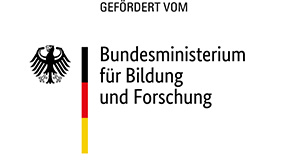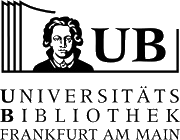Kritisches Denken lehren: Inklusionsorientierte Konzeption von Lernarchitekturen und Aufgabenformaten
Teaching critical thinking: Inclusive design of learning architectures and task formats
DOI:
https://doi.org/10.21248/qfi.102Schlagworte/Keywords
Kritisches Denken, Dilemma, Inklusiver Unterricht, Aufgabenstellungen, Critical thinking, assignments, inclusive teachingZusammenfassung
Untersucht wird, wie über den Einsatz von Dilemmata als spezifisches Aufgabenformat Kritisches Denken im inklusiven Unterricht gelehrt und gelernt werden kann. Hierfür werden theoretische Grundlagen zum Kritischen Denkens aufgezeigt und Dilemmata genauer dargestellt. Im empirischen Teil des Beitrags werden Fragebogendaten von Schüler:innen der Sekundarstufe 1 (N=225) zu einem Dilemma ausgewertet, in dem Umwelt- und Tierschutzfragen gegen wirtschaftliche und soziale Interessen gestellt werden. Das Antwortverhalten der Schüler:innen wird diskutiert. Über rekonstruktive Verfahren werden dann interaktionale Prozesse genauer untersucht, die bei einer Bearbeitung des gleichen Dilemmas in einer Gruppenarbeitssituation (N=2) audiographiert wurden. Aus den gewonnenen Ergebnissen können einerseits die Antwortperspektiven der Schüler:innen genauer untersucht werden. Andererseits lassen sich daraus Rückschlüsse ziehen, wie Dilemmata im inklusiven Unterricht aufgebaut und gestaltet sein sollten, damit alle Schüler:innen die Möglichkeit erhalten, sich aktiv in die Arbeitsprozesse einzubringen.
Abstract
It is investigated how critical thinking can be taught and learned in inclusive education by using dilemmas as a specific task format. For this purpose, theoretical foundations of critical thinking are presented and dilemmas are described in more detail. In the empirical part of the study, questionnaire data of students of secondary school level 1 (N=225) are analyzed. In the dilemma environmental and animal protection issues are posed against economic and social interests. The response behavior of the students is discussed. Using reconstructive methods, interactional processes are then examined in more detail, which were audiographed during a processing of the same dilemma in a group work situation (N=2). From the results obtained, on the one hand, the response perspectives of the students can be examined more closely. On the other hand, conclusions can be drawn from the results as to how dilemmas must be structured and designed in inclusive teaching so that all students have the opportunity to actively participate in the work processes.
Downloads
Veröffentlicht
Ausgabe
Rubrik
Lizenz
Copyright (c) 2023 David Rott, Marcus Kohnen

Dieses Werk steht unter der Lizenz Creative Commons Namensnennung - Keine Bearbeitungen 4.0 International.


